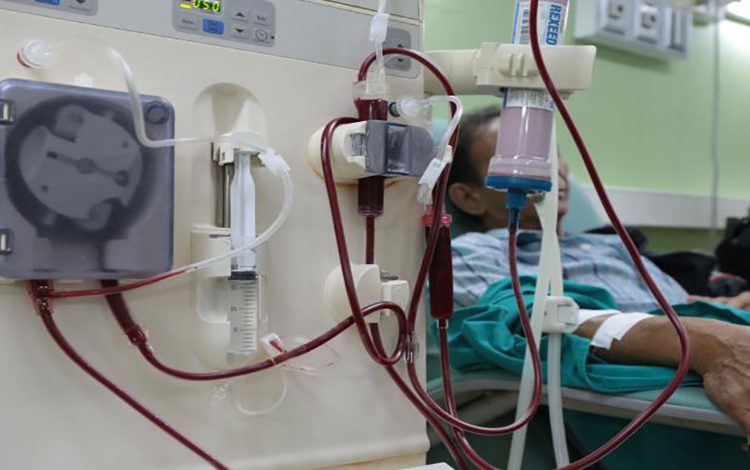The number of patients suffering from kidney disease increased in Cuba due to the coronavirus pandemic, according to a joint study carried out by the Doctor Abelardo Buch López Institute of Nephrology and the Salvador Allende Hospital, both located in the island’s capital.
The head of the National Nephrology Group and leader of the research, Dr. Raúl Herrera, stated that the usual prevalence of chronic kidney disease in Cuba is around 10%, but the study of convalescents from COVID-19 shows an increase in those figures, the Agencia Cubana de Noticias news agency reported.
An assessment of the partial results of the investigation discovered, in turn, that the patients with the greatest damage “are those who present the most comorbidities, since these factors can lead to a persistent chronic inflammatory state and increase the risk of progress of the kidney disease,” noted the doctor, quoted by the source.
Likewise, the specialists involved in the study found that people over 60 years of age who fall ill with COVID-19 are the most likely to suffer from elevated kidney deterioration.
https://oncubanews.1eye.us/cuba/pacientes-con-tratamiento-dialitico-en-cuba-seran-inoculados-con-el-candidato-vacunal-abdala/?amp
The research, which will conclude in the coming weeks, indicates that in convalescents from the disease caused by SARS-CoV-2, inflammatory biomolecules harmful to the body persist, where the organs are left with a certain vulnerability due to the damage caused in the active phase of the disease, which is reflected in the so-called cytokine storm.
Dr. Herrera pointed out that these results have yet to be verified a year after the patients are discharged, to know if the kidney disorders are maintained or if the affectation has advanced.
The expert also stated that it would be interesting to compare these data with those of other countries, and to perhaps later study the impact of the virus on the kidney in a context of circulation of more aggressive strains of the pathogen, such as Delta, which has shown a high level of contagiousness and greater risk of severity in patients.
The research on kidney disease in convalescents of COVID-19 was carried out in the first half of 2020, in the relatively noble stage of the pandemic in relation to now. Therefore, it is presumable that there is currently a higher degree of kidney damage in the active phase and, therefore, greater renal vulnerability in convalescent patients, the specialist told the ACN.
Cuba is going through its worst COVID-19 wave, with more than 9,000 daily cases in recent days and more than 400,000 since the start of the pandemic, as well as 2,993 deaths. And although more than 360,000 patients have already recovered, the aftereffects of the disease left in part of them are still being studied.










